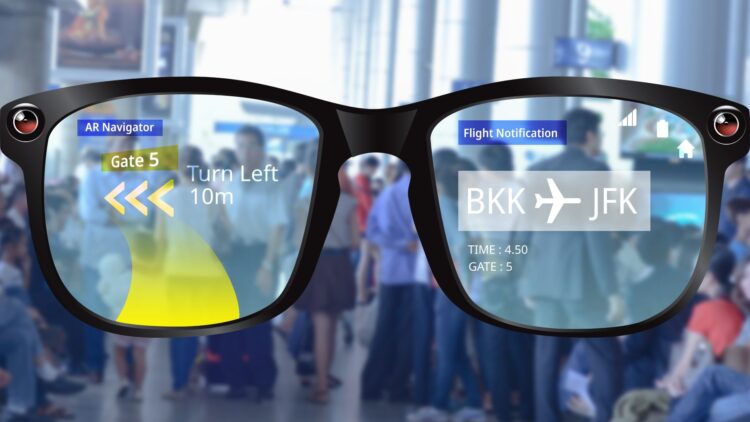When Google glasses came out a few years ago, the company believed that they would revolutionize the tech world and begin to push out a lot of the technology that we use nowadays. They were not popular or successful, after all those that wear glasses did not want to replace them, the tech was clunky and those who do not wear glasses did not want to start. But it seems like the idea has not gone away and now Mark Zuckerberg has created his own version of smart glass technology and believes again that they will dominate the world.
Despite the initial flop, it is easy to see why Mark Zuckerberg, owner of Meta (tech company that includes platforms like Instagram, Facebook and WhatsApp), would think that this technology is the gateway to the future. Even when it was initially developed the capabilities were impressive, and it was a hands off way of getting everything you need in your daily life without any of the annoyances. And now technology has advanced even further, making the concept even less of a gamble.
Mark Zuckerberg’s take on the new technology
Mobile phones have gone through more than one iteration, first they were big and impractical, so much so that mobile was almost a debate, then they were super small and compact, then they started doing everything, resembling more a computer than a phone and some being just as large, and now many users are choosing to use a “dumb” phone jus to escape the constant grind.
But there are still many that are looking for ways to make technology more accessible and integrated into our day to day lives, and the glasses have already been created, and so making them into a better version of themselves is easier than to come up with an entirely new concept. Plus, if they make them good enough, those who already wear regular glasses will likely be inclined to make them a part of their routine.
At the very least, Zuckerberg seems convinced that the new old tech will work this time around. At an annual Meta event, this time presenting the new Oculus Quest 3S (a more affordable ($299) type of wearable VR headset) he spoke of this new step for his company stating “I think that it’s pretty easy to wrap your head around [the idea that] there are already 1 to 2 billion people who wear glasses on a daily basis. Just like everyone who upgraded to smartphones, I think everyone who has glasses is pretty quickly going to upgrade to smart glasses over the next decade. And then I think it’s going to start being really valuable, and a lot of other people who aren’t wearing glasses today are going to end up wearing them, too.”
While the announcement can seem a bit unexpected, Zuckerberg’s company has been working on these wearable glasses for a while now, with the new Orion glasses already announced and touted as “the most advanced pair of AR glasses ever made”. Unlike the precious versions, these are AI-powered, which makes them a lot more advanced and capable to process all the information the world feeds them in real time.
But the Orion glasses are not the first ones that Zuckerberg created. In partnership with Ray-Ban, Meta already offers smart sunglasses equipped with a 12MP camera, built-in audio, and real-time translation capabilities that appear directly on the lenses. These glasses, ranging from $299 to $379, allow users to send voice messages, access podcast audio, translate written language from physical objects like signs or menus, and even provide style suggestions based on what the wearer sees. Although not as advanced, they are a taste of what is to come, and this time around they seem to be a little more accepted.

